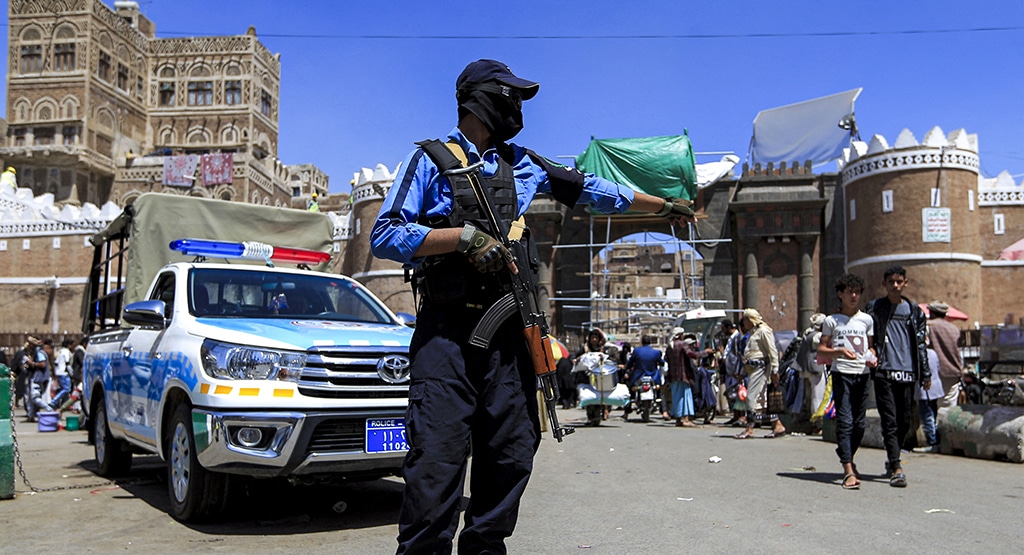DUBAI: Yemen's warring parties have agreed to renew a two-month truce, the United Nations said on Thursday, in an 11th-hour move on the day it was set to expire. Aid agencies and Western governments had urged the Yemeni government and Houthi rebels to extend the truce, which went into effect in April and significantly reduced the intensity of fighting in a conflict the UN says has triggered the world's worst humanitarian crisis.
"I would like to announce that the parties to the conflict have agreed to the United Nations' proposal to renew the current truce in Yemen for two additional months," the UN special envoy on Yemen, Hans Grundberg, said in a statement. Yemen has been gripped by conflict since the Iran-backed Houthi rebels took control of the capital Sanaa in 2014, triggering a Saudi-led military intervention in support of the beleaguered government the following year.
Grundberg said the truce was extended under the same terms as the previous one. It officially came into effect when the old one expired, at 7:00 pm Yemen time (1600 GMT). US President Joe Biden hailed the extended ceasefire, noting also "it's important that we work from here to make it permanent". Saudi Arabia likewise welcomed the announcement on Thursday, saying it was "keen to support UN efforts for a long-term political solution to the Yemeni crisis", reported the official Saudi Press Agency.
The Norwegian Refugee Council said that the extension "shows a serious commitment from all parties to end the senseless suffering of millions of Yemenis". "We hope this... will allow for further progress on the reopening of roads linking cities and regions, allow more displaced people to return to their homes, and ensure humanitarian aid" reaches those previously beyond reach NRC's Yemen country director, Erin Hutchinson, said in a statement.
'Additional steps'
On Wednesday, a Yemeni aircraft left Sanaa for Cairo on the first commercial flight between the two cities since 2016. It was the seventh such flight under the truce, with the previous six all heading to the Jordanian capital Amman. Beyond opening Sanaa airport to some commercial flights - a lifeline to Yemenis needing medical care abroad - the truce has allowed oil tankers to dock in the rebel-held port of Hodeida, potentially easing fuel shortages in Sanaa and elsewhere.
But a provision for the rebels to ease their siege of Yemen's third-largest city Taez has yet to be implemented, angering the government which is demanding roads to the city be opened. The rebels in turn have called on the government to pay the salaries of public sector employees working in areas under their control.
"In order for the truce to fully deliver on its potential, additional steps will need to be taken, particularly on the matters of road openings and commercial flight operations," Grundberg said. He would continue to engage on such issues, he said, to help "move towards a sustainable political settlement to the conflict that meets the legitimate aspirations and demands of Yemeni women and men."
A Sanaa resident, Nabil Al-Qanis, said Yemenis were "tired" of the war and wanted it to be over. "All parties must work hard to stop the war... and the UN must put pressure on any obstinate party," he told AFP. The conflict has killed hundreds of thousands of people and left millions on the brink of famine. More than four million people have been displaced, and 19 million stand to go hungry this year, Stephane Dujarric, spokesman for UN chief Antonio Guterres, said on Wednesday. That includes "more than 160,000 who will face famine-like conditions", he said. - AFP











